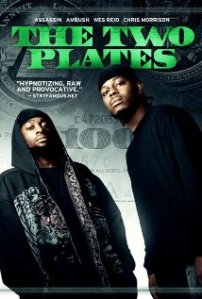
If someone knew nothing about life on earth, and gleaned all they knew about the New York Police Department from watching Reinaldo Marcus Green’s bitch-burn-downer Monsters and Men – or, as I am dubbing it, Dindus and Dems – that viewer could hardly be blamed for believing that the NYPD exists primarily for the purpose of persecuting innocent people of color. The film is a bit reminiscent of Paul Haggis’s Crash (2004), but updated for the angrier decade of hands-up-don’t-shoot hoaxery. In a story inspired by the death of Eric Garner, a racist white police officer shoots a po innocent brotha jus tryna sell some loosies on the corner – and witness Manny (Anthony Ramos) must now decide whether to keep his head down to protect his family or release his camera phone footage to the internet and risk the repercussions. In another of its threads, Dindus and Dems traces the turmoil experienced by aspiring baseball star Zyrick (Kelvin Harrison, Jr.) who, after experiencing police harassment, finds himself attracted to a troublemaking BLM-style organization despite the expectations of his more conservative father. Thirdly, Dindus and Dems follows black police officer Dennis (John David Washington, who has inherited father Denzel’s voice), who finds himself torn between his loyalty toward the force, his firsthand knowledge of discriminatory policing, and his fellow blacks’ perception of him as a race traitor. It’s worthwhile to watch trash like this once in a while, if only to see just how far removed from reality liberals’ understandings of race relations are to the extent that they take their cues from corporate media messaging – and, as Dindus and Dems makes abundantly clear, we appear to be inhabiting entirely different planets.
2 out of 5 stars. Ideological Content Analysis indicates that Dindus and Dems is:
5. Anti-drug. After being stopped and searched by police officers, Zyrick goes home and flushes a packet of weed down the toilet, presumably because he realizes the trouble he would have been in had the police found the pretext to arrest him. Drug use is also mentioned as a potential barrier to professional athletic success.
4. Pro-AIDS. The community organizing horde that Zyrick joins focuses on black grievances but also advocates for “trans women”.
3. Pro-family. Dindus and Dems presents more than one example of caring fathers. As Zyrick’s trajectory illustrates, however, fathers do not possess ultimate moral authority and are subject to rebellion.
2. Anti-capitalistic – but only disingenuously so. “Look around. Just turn on the TV,” insists a black street corner poetess. “KKK walkin’ ‘round here free. No white sheets. White shirts and ties, all lies. Wall Street lookin’ far too familiar like the cotton fields of Virginia,” she conjures, equating the world of finance with southern plantation culture – rather than, say, kibbutzim. Wall Street would look “far too familiar” to writer-director Reinaldo Marcus Green, who, according to Filmmaker Magazine, slaved “for five years as a director of talent acquisitions in diversity on Wall Street.”
1.Woke. Dindus and Dems is set in the “tight-knit” Bedford-Stuyvesant neighborhood of Brooklyn, which also served as the setting for Spike Lee’s similarly provocative but rather more honest Do the Right Thing (1989). Ironically, this is also the neighborhood where police officers Wenjian Liu and Raphael Ramos were murdered “execution-style” in their patrol car by angry black psycho Ismaayil Brinsley in 2014. As Dindus and Dems would have it, though, it is innocent black men just trying to get home from baseball practice or cruise around listening to Al Green who are hunted by Nazi cops with impunity. “You got a hoodie on, for chrissake,” Zyrick’s father objects before his son heads downtown to participate in a protest – the implication being that this increases the chances that some white person will shoot him a la Trayvon Martin. Inspiringly, the end of the film presents sportsball as a safe and productive means through which blacks can voice their gripes.
Rainer Chlodwig von K.
Rainer is the author of the books Drugs, Jungles, and Jingoism and Protocols of the Elders of Zanuck: Psychological Warfare and Filth at the Movies.










